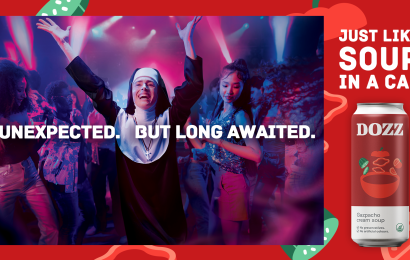How To Win An Effie – Camelia Petrescu (Unlock Market Research)
After last year’s successful series “How To Win An Effie“, we decided it’s time to continue it this year as well, bringing you even more info on how to prepare for the most famous international competition celebrating efficiency.
We started this process with Hortensia Nastase, Vice-President Creative Services MullenLowe Romania. Today, we present you Camelia Petrescu, Associate Director Unlock Market Research, and part of the Effie 2019’s Jury.
AdHugger.net: What are the most important to dos when being part of the Effie Jury?
Come prepared to concentrate on judging and not on the tasks you left at the office. Judging requires close attention & thinking so you need to be there, „present”.
Write some arguments for your personal raking before having the public debate, it will help you stay more focused on the reasons you gave the ranking and to bring potential arguments to the table. At the same time, be prepared to listen to others’ line of thought as well.
Be very conscious on the timing, check the watch so as to have time to go though all the information before debate.
Avoid the trap of becoming cynical and too picky, but at the same time avoid being impressed about a nice idea. Do not forget is about efficiency in the end.
And not in the last, enjoy it when you find inspiring cases that really made a difference.
AdHugger.net: How has your professional experience and judging in other festivals’ experience helped you?
I think that for me, as a researcher, a competition which focuses on efficiency and strategy makes total sense. We, in research, are dealing exactly with finding the best strategy for a brand to reach their objectives.
What also helped is the actual specific of Unlock way of doing things- being closely connected with clients and agencies , trying to understand the bigger picture not just the specific questions of a research. So, yes, putting things in perspective helped.
AdHugger.net: What are the main Dont’s?
Don’t wait for others to comment before you give your marks, the discussion can alter too much your initial line of thought. I don’t say not to consider some arguments if they make sense or bring new perspective on some things. But still, give your rating first and if possible write some arguments to sustain the rating. This will support a more productive discussion also.
AdHugger.net: How should one prepare for the judging days?
I do not know if one does need a special preparation for Effie. I think that trying each working day to do your job the best you can is enough preparation. And maybe think of the cases, brands that impressed you during last year, that made you change the perspective of things but just as a way to get into the mood.
AdHugger.net: What piece of advice would you give to somebody judging for the first time at the Effies?
That advice would definitely be to „come to the briefing session”. I felt it really helped me have an overview on things one should look on, on how to better put things on perspective. I also think that having some overview on market trends and categories evolution really helped so yes, do come to the briefing session.
AdHugger.net: What would you say that are the main ingredients of winning an EFFIE trophy?
It’s simply about both client and agency working together and staying true to the purpose of efficiency. Wanting to do things rather than collect the glory of „oh, what an interesting creation”, without however implying that creative work does not matter. And I am glad to have seen so many cases that truly focused on this idea of efficiency.
And I think that Effie can be a great way to make all the players ticking all the „boxes” before any brand action or communication – make sure that the objectives, target, insight, creations are all connected so that in the end you have the desired results.
AdHugger.net: How important is the way you write your study case?
I think it’s very important and one could actually see the companies having experience in writing Effie cases. Consistency is highly important and also sharpness in presenting data when it comes to objectives and results. And to link the case with the category in which they entered the case. I often had the feeling with some cases that they were actually meant primarily for a different category- like not really linking challenge with target and then insight
And also, I think is important to be honest; sometimes I felt some cases were trying too much to mold their objectives bases on results obtained. So, I mostly appreciated cases that provided solid and consistent measurements before &after campaigns or from one year to another. And that can provide a strong rationale for the way they established their objectives – i.e. based on internal or market benchmarks etc. Otherwise, it gives the sensation they are just trying to manipulate results
AdHugger.net: Have you seen good campaigns that failed to win due to a bad case study writing? Why?
I think that it might be happening with cases which were entered in more than one category, and what I would advise companies is to adapt the case so as make sense for each specific categories.
In so many occasions one could clearly see when a case was actually thought / conceived for one particular category. Not being adapted for the rest of the categories gave me the feeling that the company itself does not trust its case as belonging or being strong enough for the rest of categories (other than main one). And this overall decreases its chances to be awarded in more categories.







